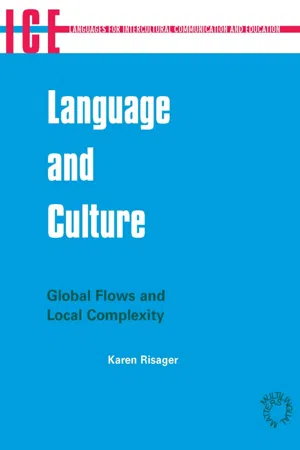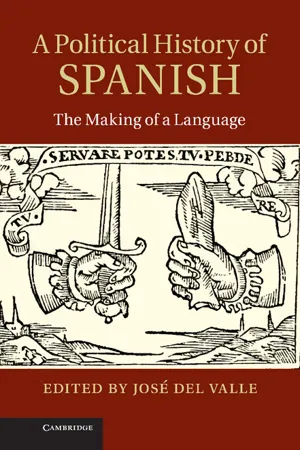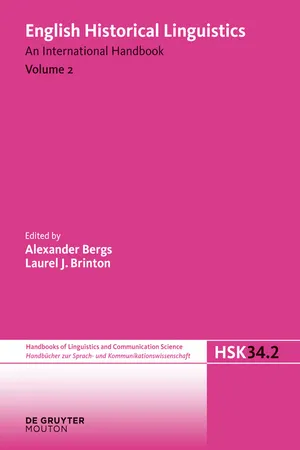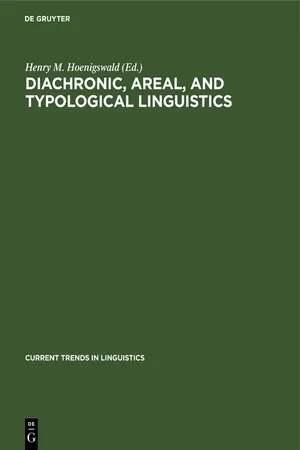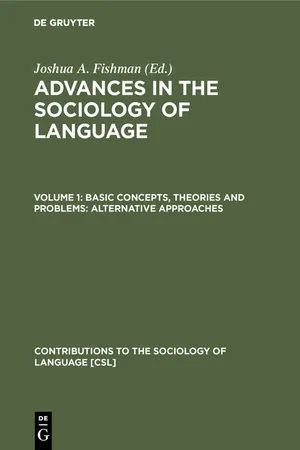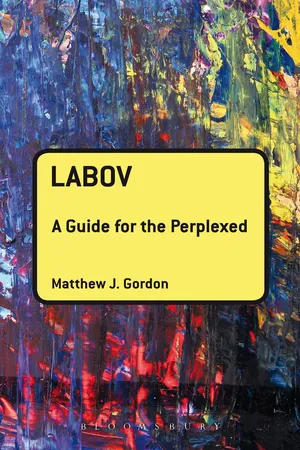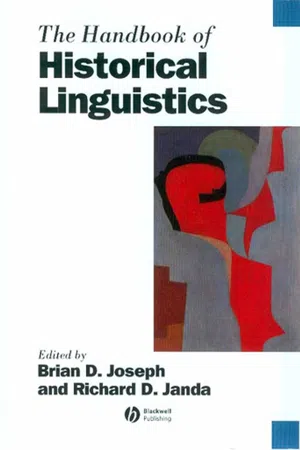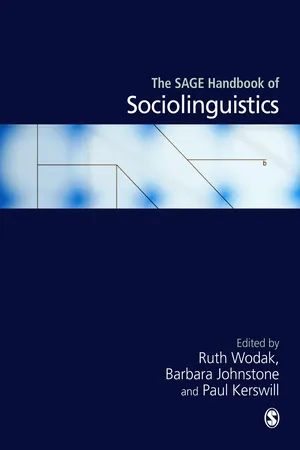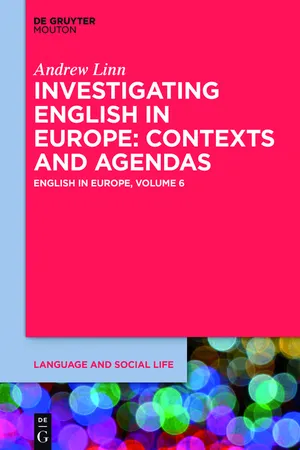Languages & Linguistics
Historical Context
Historical context refers to the social, cultural, and political conditions that existed during a particular time period and directly influenced the development and use of languages. Understanding historical context is crucial for interpreting linguistic changes, language evolution, and the impact of historical events on language. It provides valuable insights into the factors that have shaped languages over time.
Written by Perlego with AI-assistance
Related key terms
1 of 5
12 Key excerpts on "Historical Context"
- eBook - PDF
Language and Culture
Global Flows and Local Complexity
- Karen Risager(Author)
- 2006(Publication Date)
- Multilingual Matters(Publisher)
Cultural Context Seen As a Complex Historical Macro-context However, in my opinion it is not possible either to create a theory about the cultural context based exclusively on a linguistic perspective. It calls for an interdisciplinary approach, e.g. a link with Hannerz’s approach to cultural complexity and cultural flows. Such an approach must take an interest in the linguistic and the cultural and societal perspective at one and the same time. If one is interested only in the linguistic aspect, the understanding of the context will have an ad hoc touch. An example of this is Sperber and Wilson (1986). Their theory of relevance – of how language users make elements of the micro- and macro-context relevant by utilising their knowl-edge of the many different ways to produce and understand language – is important as a theoretical framework for the study of the conditions for linguistic communication and for the pragmatic analysis of spoken and written text. But their concept of context is insufficient, because it is derived from language. To achieve a more systematic understanding of the concept of context one has to abandon the idea that the sole aspects of the context that are interesting are those that one can decode from the text, or which one must assume are known by language users for them to be able to understand the text, via inference. Linguistic/languacultural and discursive practice (bound together in the same linguistic event) always takes place in a concrete historical, socie-tal context that can be described at various different levels, from the lowest micro-level (the situational context in relation to the individual communicative event) to the uppermost macro-level (the global, world-152 Language and Culture Historical Context). The context contains dimensions that one can describe as economic, technological, political, etc., depending on one’s professional point of view. - eBook - PDF
A Political History of Spanish
The Making of a Language
- José Del Valle(Author)
- 2013(Publication Date)
- Cambridge University Press(Publisher)
A sociolinguistic description of a language offered not just correlations between forms of grammar and social factors but the snapshot of a system that contained the seeds of its potential transformation. Thanks to this theoretical and methodological leap, it was now possible to see language in motion and to think of the historicity of language not only as evolution along different positions in a chronological empty grid, but as a dynamic relationship with context. Developments in sociolinguistics led Peter Burke to see a gap between lin- guistics, sociology and history: a barely explored space that could and should be productively gauged and charted by a social history of language (1987). In his view, sociolinguistics had made four major historically relevant points: “1. Different social groups use different varieties of language. 2. The same peo- ple employ different varieties of language in different situations. 3. Language reflects the society (or culture) in which it is spoken. 4. Language shapes the society in which it is spoken” (1987: 3–4). Points 1 through 3 are indeed con- sistent with the general development of sociolinguistics and historical socio- linguistics: inasmuch as variation correlates to social categories and situational factors, an individual’s usage – the choice of certain variants over others – may provide us with information on her or his social position as well as on the social structure of the situation in which the utterance or the text was produced. Following these principles, specific research projects (on, say, the use of vos and t´ u in eighteenth-century Castile or the use of s and x as social markers in sixteenth-century Le´ on) would produce results that would be located in a “big picture” representing the history of language X. - eBook - PDF
- Alexander Bergs, Laurel J. Brinton, Alexander Bergs, Laurel J. Brinton(Authors)
- 2012(Publication Date)
- De Gruyter Mouton(Publisher)
Besides linguistic context, the broader and mainly European view pays attention to the social and cultural back-ground. According to this view, almost any language phenomenon, including silence, can be scrutinized as pragmatic: “the linguistic phenomena to be studied from the point of view of their usage can be situated at any level of structure or may pertain to any type of form-meaning relationship” (Verschueren 1999: 2). Thus, pragmatics of-fers a different perspective on how language resources are used in communication. In general, a central concern in pragmatics is negotiation of meaning in interaction, taking the contributions of both speaker and hearer into account as well as those of utterance and context (Thomas 1995: 23). Language is viewed as communication and negotiation between text participants in context, including both linguistic and sociohistorical aspects. Language change is the core area of historical linguistics, and historical pragmatics shares it, but the emphasis is somewhat different: language-internal motivations become fore-grounded in the former while the meaning-making processes are prominent in the latter, as historical pragmatics takes language users into account. 4 . 2 Historical linguistics The variationist approach can be applied to the pragmatic level of language use in as-sessing how English has developed during its history from Old English to Present-day English. In variationist studies, language is viewed as a constantly changing entity, with current options providing the basis of language use. We can describe the patterns of language use in different communicative situations at different times and between peo-ple of different backgrounds. - B. Kumaravadivelu(Author)
- 2008(Publication Date)
- Yale University Press(Publisher)
C H A P T E R 9 Contextualizing Linguistic Input (L)anguage takes place in social contexts and makes con-nections with the realities that make up those contexts. — HALLIDAY AND HASAN , 1976, p. 305 Language communication is inseparable from its communicative context. Taken out of context, language communication makes little sense. What all this means to learning and teaching an L2 is that we must introduce our learners to language as it is used in communica-tive contexts even if it is selected and simplified for them; otherwise, we will be denying an important aspect of its reality. The reality of language is represented in some of the terms used recently to refer to language: language as text (Halliday, 1974), lan-guage as communication (Widdowson, 1978), language as context (Goodwin and Duranti, 1992), and language as discourse (McCarthy and Carter, 1994; Celce-Murcia and Olshtain, 2000). These terms, taken from the fields of theoretical linguistics, applied linguistics, and anthropology, are used interchangeably and have one thing in common: they all treat language as something that invokes context as well as something that provides context (Goodwin and Duranti, 1992, p. 7). In spite of the importance given to context in linguistic and an-thropological circles and in spite of its widespread use, the term context eludes a clear definition. In fact, as anthropologists Charles Goodwin and Alessandro Duranti (1992, p. 2) point out: “It does not seem possible at the present time to give a single, precise, technical definition of context, and eventually we might have to accept that such a definition may not be possible.” They also point out that the term comes from the Latin contextus , which means a joining together. The opening quote from Michael Halliday and Ruqaiya Hasan mentions the joining together of realities that make up a- Henry M. Hoenigswald(Author)
- 2019(Publication Date)
- De Gruyter Mouton(Publisher)
THE SOCIAL SETTING OF L I N G U I S T I C CHANGE WILLIAM LABOV The study of language change in its social context has been described by some as a virgin field; by others, as a barren territory. A brief examination of what has been written in the past on this subject shows that it is more like an abandoned back yard, overgrown with various kinds of tangled, secondary scholarship. The subject has been so badly treated with voluminous, vacuous and misleading essays that one can sympathize with linguists who say that it is better left alone. But the consequences of avoiding the social dimension of language change are serious. We are then left with such a limited body of fact that we are condemned to repeat the arguments of our predecessors; we find ourselves disputing endlessly about bad data instead of profiting from the rich production of new linguistic change around us. Nevertheless, historical linguists have adopted and vigorously defended a thorough-ly asocial policy in the past half-century. To understand why, it will be helpful to re-examine briefly the history of the relations between linguists and society, and how they have succeeded in avoiding each other. This review will raise three questions: whether the expressive and directive functions of language are important determinants of change; whether highly abstract rules of grammar can be affected by social forces; and whether linguistic evolution is entirely dysfunctional. This chapter may be con-sidered the diachronic correlate of The study of language in its social context (Labov 1970) which was concerned almost entirely with the synchronic aspects of the first two questions. Data from a number of recent studies of change in progress will be presented to show how linguistic changes may be embedded in a social context, how they are evaluated, and how change may be activated at a particular time and place. These findings will then be applied to the three questions raised above.- Joshua A. Fishman(Author)
- 2019(Publication Date)
- De Gruyter Mouton(Publisher)
The Study of Language in its Social Context 153 given person or group uses language X in a social context or domain Y. A number of recent reviews have discussed work in this area (Fishman 1969) and I will not attempt to deal with these questions and this research in this paper. There is another area of study sometimes included in 'sociolinguis-tics' which is more concerned with the details of language in actual use - the field which Hymes has named the ethnography of speaking (1962). There is a great deal to be done in describing and analyzing the patterns of use of languages and dialects within a specific culture: the forms of 'speech events'; the rules for appropriate selection of speakers; the interrelations of speaker, addressee, audience, topic, chan-nel and setting; and the ways in which the speakers draw upon the resources of their language to perform certain functions. This functional study is conceived as complementary with the study of linguistic structure. Current research and the aims of the field have been well reviewed by Hymes (1966); in our discussion of methodology, some of the material of this descriptive study will be involved, but this review will not attempt to cover the ethnography of speaking as a whole. A number of readers and reviews of this larger field of 'sociolinguistics' have appeared recently; and the reader will find a number of excellent and penetrating studies in Bright 1966; Gumperz and Hymes 1966; Lieberson 1966; Fishman 1968; Ervin-Tripp 1968; and Grimshaw 1968. This paper will deal with the study of language structure and evo-lution within the social context of the speech community. The linguis-tic topics to be considered here cover the area usually named 'general linguistics', dealing with phonology, morphology, syntax and seman-tics. 1 The theoretical questions to be raised will also fall into the category of general linguistics.- eBook - PDF
- Matthew J. Gordon(Author)
- 2012(Publication Date)
- Bloomsbury Academic(Publisher)
CHAPTER SEVEN Labov as historical linguist In the most general sense, historical linguistics describes that branch of the field dedicated to the study of language change. Questions of how and why languages evolve over time have been central to linguistics from the start. Throughout the nineteenth and twentieth centuries some of the most significant achievements in the field came from the study of historical connections within the Indo-European family of languages. Scholars traced the history of English, Latin, Greek, Sanskrit, and the roughly 200 other languages that make up this family. By systematically comparing the daughter languages, they succeeded in reconstructing a detailed picture of the structure of the common ancestor, Proto-Indo-European, a language thought to have been spoken some 6,000–9,000 years ago. Interest in language change has dominated Labov’s research agenda, though he has set his sights on more recent developments. Still, he has wrestled with many of the same issues as traditional historical linguistics throughout his career from the landmark studies he carried out in graduate school to his opus magnum on the subject, the three-volume Principles of Linguistic Change (1994, 2001b, 2010). This diachronic emphasis comes as little surprise. After all, language variation and language change go hand-in-hand. Change is essentially variation projected in the temporal dimension. Just as synchronic variation involves one group preferring usage A to usage B while a different group prefers B to A, language change appears as people at one time preferring A to B, and people at some later time preferring B to A. Moreover, the same methodology LABOV 162 developed for studying sociolinguistic variation at one point in time shines new light on the study of language change. This chapter sketches Labov’s methodological innovations in the exploration of linguistic change and highlights key insights resulting from this work. - eBook - PDF
- Brian Joseph, Richard Janda, Brian Joseph, Richard Janda(Authors)
- 2008(Publication Date)
- Wiley-Blackwell(Publisher)
That is, one does not have to be very historical (much less historic; see below) to be a historical linguist. The field is open (as it should be) to both studies of language history and studies of language change. 96 We might then say that historical linguistics is about the linguistics of history and the history of languages, and includes all that those two areas encompass. On the other hand, there is an additional moral latent in the fact that the English word historical (attested since the fifteenth century) is also sometimes used to mean (or at least to connote) the same thing as historic (attested since c. 1607), hence roughly “famous or important in history, having great or lasting significance, known or established for an appreciable time.” Thus, for example, in the American Automobile Association (AAA) of Ohio’s Home and Away Maga-zine 21.2 (for March/April, 2000), there is a vignette (p. 65) with the punning title “Historical Descent.” This description initially raises the expectation that what follows will relate either to someone’s having had a prominent ancestor or to a famous exploit involving downward movement (say, an early aviator’s momentous landing, or a spelunker’s record drop deep into the earth). But the text that then follows turns out to present simply a description of a hike down into Heritage Canyon (near Fulton, Illinois), where an open-air museum in a former quarry preserves old buildings moved there mostly from neighboring sites. The descent at issue is undeniably historical , since it has to do with local history, but it is hardly historic in the sense of being either generally significant or well known, even though the phrase historical descent which is at issue here readily invites this inference. - eBook - PDF
- Ruth Wodak, Barbara Johnstone, Paul E Kerswill, Ruth Wodak, Barbara Johnstone, Paul E Kerswill(Authors)
- 2010(Publication Date)
- SAGE Publications Ltd(Publisher)
Even languages that have written documentation of the past lack a written record representative of the language community as a whole. Wide-ranging illiteracy lies at the root of this historical ‘bad-data prob-lem’. This is not only the case of the distant past but would also apply to modern sociolinguistics if it were to rely on written material as its data source. According to the statistics published by UNESCO, 774 million people, about one-fifth of the world’s adult population, could not read or write in 2008. Historical linguistics, in turn, has a long tradition of defining its objectives in rather abstract terms. This is justified, as noted above, because all the prehistory and most of the history of human lan-guages even since the advent of writing have gone unrecorded. What can be reconstructed is based on comparisons of the information available on the sound systems, morpheme inventories and vocabu-lary of genetically related languages. The compara-tive method relies on the basic hypothesis that language change, and sound change in particular, is regular. The application of this method requires that the object of investigation is limited to one system at a time. A typical view of a historical linguist is expressed by André Martinet, who specifies the object of historical linguistics as the study of a perfectly homogeneous community. He writes: To simplify our analysis, we shall assume that the language in process of evolution is that of a strictly monoglot community, perfectly homogeneous in the sense that observable differences represent successive stages of the same usage and not con-current usages (Martinet, 1964: 164). However, aware of linguistic variation, Martinet refers to central concepts used by sociolinguists, Historical Sociolinguistics T e r t t u N e v a l a i n e n THE SAGE HANDBOOK OF SOCIOLINGUISTICS 280 such as the speech community. - eBook - PDF
- Ingo Plag, Maria Braun, Sabine Lappe, Mareile Schramm(Authors)
- 2009(Publication Date)
- De Gruyter Mouton(Publisher)
210 Extensions and applications Chapter 7 Extensions and applications: historical linguistics, sociolinguistics and psycholinguistics 7.1. Introduction In the preceding chapters you have encountered a host of language phenom-ena from various domains (phonetics, phonology, morphology, syntax, se-mantics, pragmatics), and you have learned how these phenomena can be in-vestigated in order to find out more about the structure and use of language. Apart from these areas of linguistic research, scholars (and laypersons) are in-terested in many more questions concerning language and languages. In this chapter we will deal with three of such sets of questions. First, there are his-torical questions. How do languages develop and where do individual lan-guages come from? What is the historical relationship between languages, e.g. between English and German? Why and how do languages change? An-other set of questions concerns the social significance of language. Why is it that after listening to only a few words a speaker has uttered, we seem to know a lot about this speaker’s social background, for example her education, her social status, in which region she probably grew up, etc.? What exactly is it that is so telling? Third, many people are curious about how humans store and process language, and what language can reveal about our cognitive ca-pacities in general. We will deal with each set of questions in turn, looking at important studies in these fields in an exemplary fashion. As you will notice, trying to meaningfully answer such questions necessitates a general understanding about how language ‘works’, i.e. what kinds of structural entities language consists of and how these entities interact with each other to create that highly complex system we call language. Having worked through the preceding chapters, you are now equipped with this kind of understanding. - eBook - PDF
Investigating English in Europe
Contexts and Agendas
- Andrew Linn(Author)
- 2016(Publication Date)
- De Gruyter Mouton(Publisher)
The history of more applied language work was not subject to the same intensity of investigation. The development of ideas about language in classical antiquity came about to a large extent as a result of the need to teach languages. It could therefore be argued that it is in fact applied linguistics which has the most ancient history, but recent historical accounts of applied linguistics tend to adopt a much more limited time perspective, e.g. de Bot’s 2015 A history of 14 See http://www.hollt.net/ for the international research network with that name. Summary: The importance of a historical approach 51 applied linguistics which, despite its main title, only goes back to the 1980s. While this chapter has provided a way into the history of the teaching and learning of English in Europe, as a step in the right direction, plenty of research opportuni-ties lie ahead. Historical sociolinguistics is an even newer field than the history of linguis-tics (see section 2.1.1). As Jeroen Darquennes notes above, there is much that we can learn from language practices, behaviours and attitudes of the past which can prevent us making the same mistakes in the future, and this must be one of the key reasons for according historical study the importance we do in this book. Language learning, and language planning more broadly, do not begin afresh with each new generation. As McLelland and Smith (2014b: 1) also note, “charting the history of language teaching and learning will […] make us all better informed in facing challenges and changes to policy now and in the future”. As well as trying to learn the lessons provided by the historiography of applied lin-guistics, there are lessons to be learned from how languages and language reper-toires were used and conceptualized in the past. If formal structures around lan-guage learning do not begin anew with each generation, then that is even truer of less formal language practices. - eBook - PDF
Diachronic Studies in Romance Linguistics
Papers presented at a Conference on Diachronic Romance Linguistics, University of Illinois, April 1972
- Mario Saltarelli, Dieter Wanner, Mario Saltarelli, Dieter Wanner(Authors)
- 2010(Publication Date)
- De Gruyter Mouton(Publisher)
Even if we were to weasel out of calling this linguistics, it impinges on inescapably linguistic concerns at every turn. If we are to attempt to develop linguistic theories to account for the first four types of change, they will fail eventually if we don't take * The author would like to acknowledge the support of the Center for Advanced Study in the Behavioral Sciences, where this paper was written. 120 ROBIN LAKOFF this poor stepsister category into account. In my discussion, I will talk about this category of linguistic change, and how one is to integrate it into a theory of linguistic change, and why one wants to do so. I refer to what we might call 'contextual change'. By this I mean changes that occur in the minds of the users of language, which shape the final form of their utterances, and govern their interpretation of the utterances they encounter. It is my feeling that this sort of change is the impelling force behind many of the other kinds of linguistic change; we will be able to perceive the widespread patterns of these other changes — rather than as has been done too often, looking at them piecemeal — only if we see this overriding motivating force at work behind the scenes. We can identify contextual factors at many points. A speaker may view an event in many different ways: he can view it as important, or not; factual, or not; good, or bad; natural, or unnatural; new information, or old; and in many other ways. Linguists have studied in detail some of the ways in which this supposedly 'non-linguistic' psychological information manifests itself in superficial differences in linguistic structures. These differences have mostly been examined synchronically, in English. What I want to do now is extend this concept of the situational influence on superficial linguistic form, to show that it can change over time and affect linguistic patterns when it does.
Index pages curate the most relevant extracts from our library of academic textbooks. They’ve been created using an in-house natural language model (NLM), each adding context and meaning to key research topics.
